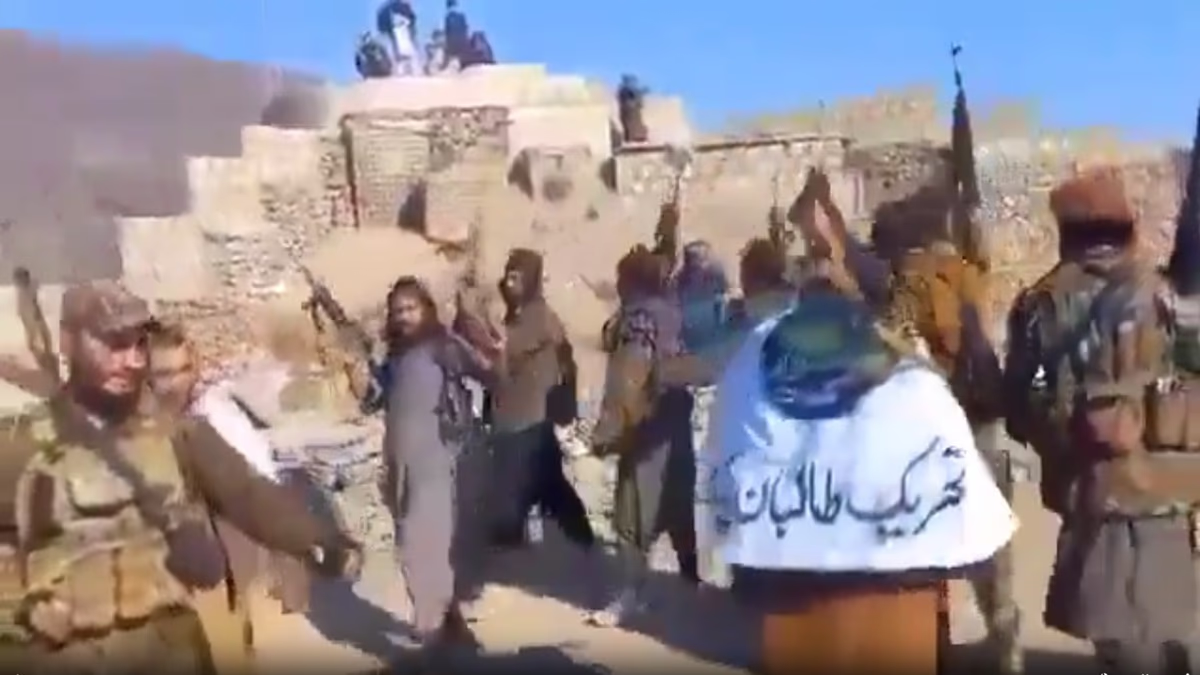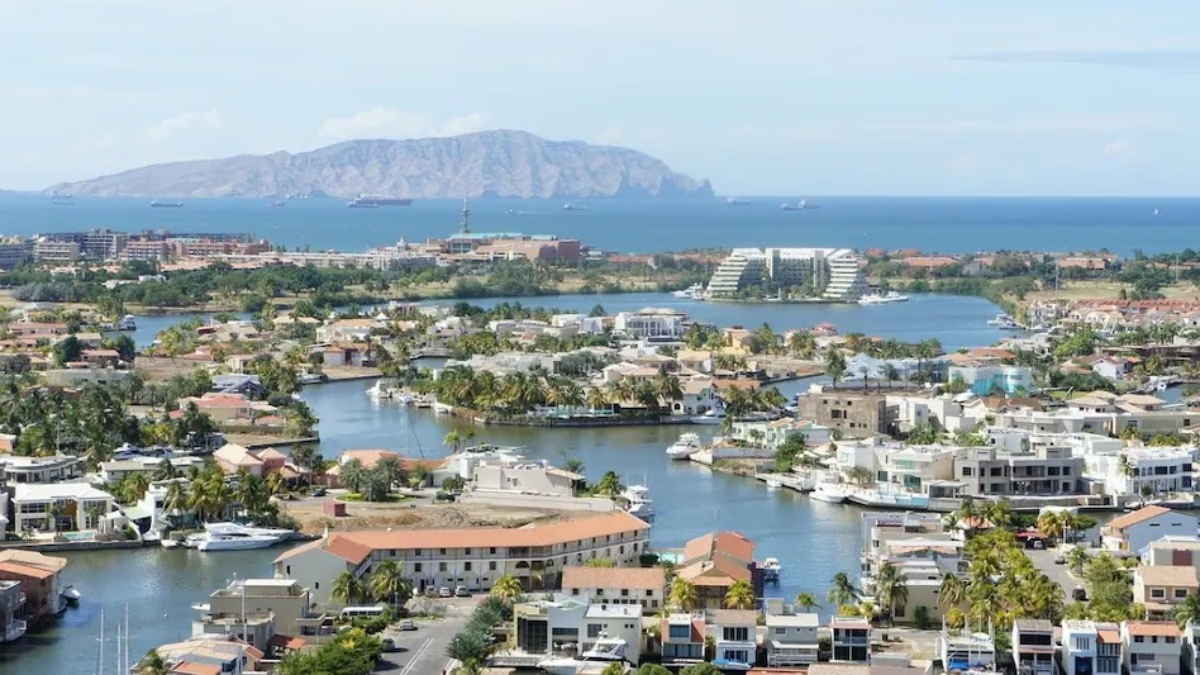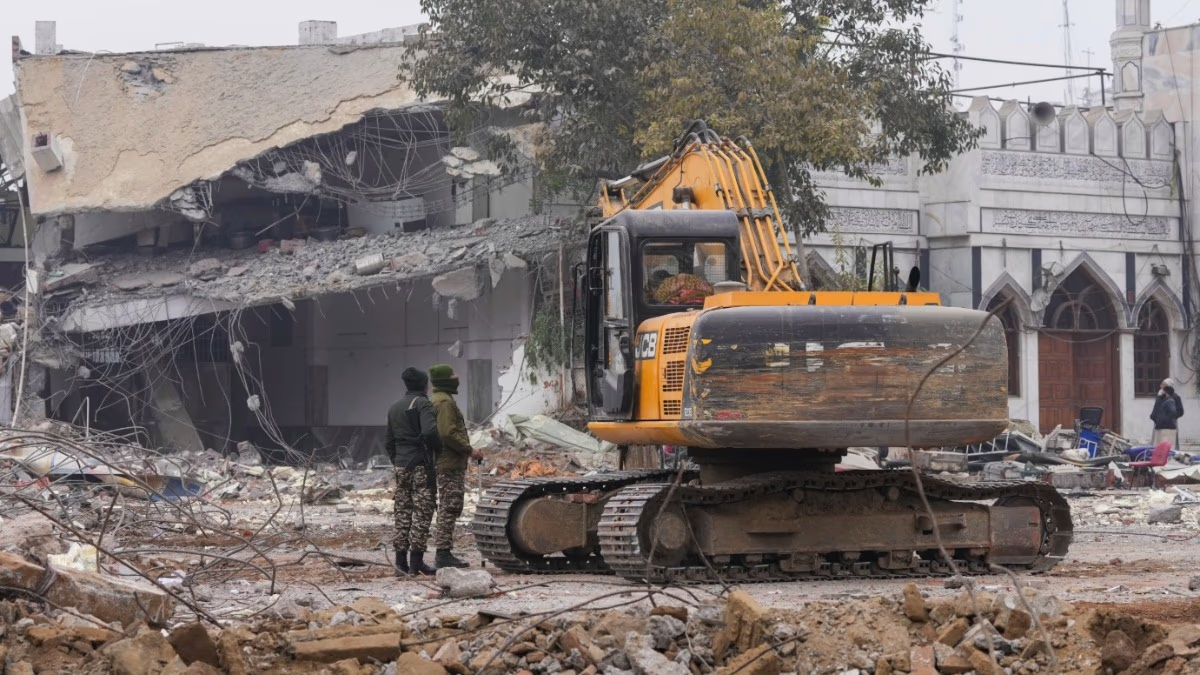Amidst ongoing tensions between Pakistan and Afghanistan, Tehrik-e-Taliban Pakistan (TTP) militants have seized a Pakistani military base in Salarzai, Bajaur district, Khyber Pakhtunkhwa. The TTP claims to have captured the Pakistani military base on the morning of December 30, 2024. A noticeable increase in terrorist activities targeting Pakistani security forces has been reported in this region, with TTP's capture being the latest and significant assault.
TTP's takeover of the Pakistani military base at the Durand border between Afghanistan and Pakistan has gone viral on social media. A senior Pakistani security official reported that the base was vacated some time ago, and soldiers had been relocated to a new and robust infrastructure. This relocation process extended beyond Bajaur, affecting older military bases in North and South Waziristan as well.
In retaliation for airstrikes on TTP bases in Afghanistan, the TTP has initiated an all-out war with the Pakistani army. Notably, 46 individuals were killed, and 6 injured in these Pakistani airstrikes in Afghanistan's Paktika province. Though Islamabad has not formally acknowledged the airstrikes, reports suggest targeted operations against TTP bases. Further claims by TTP indicate that several Pakistani soldiers have been killed in a series of attacks.
Who is Tehrik-e-Taliban Pakistan?
Tehrik-e-Taliban Pakistan (TTP), widely known as the Pakistani Taliban, is an umbrella organization of various Islamic armed militant groups, founded by Baitullah Mehsud in 2007. This group shares ideological beliefs with the Afghan Taliban, which reportedly supported TTP against the Pakistani government between 2001-2021. Despite the shared ideology, the Pakistani and Afghan Taliban operate under different command structures.
Currently led by Noor Wali Mehsud, TTP publicly pledges allegiance to Afghanistan's ruling 'Islamic Emirate of Afghanistan'. Established primarily along the Afghanistan-Pakistan border, TTP has conducted attacks in almost all major Pakistani regions.
What is TTP's objective?
TTP's declared aim is to oppose the Pakistani state, overthrow its government, and impose Sharia law in Pakistan, similar to the Afghan Taliban's regime. Their operations involve terrorist campaigns focused on tribal-dominated areas along the Afghanistan-Pakistan border. With over 30,000 armed militants, largely recruited from frontier tribal belts, TTP presents a significant threat.
Major anti-terror campaigns in 2019 by Pakistani forces in Khyber Pakhtunkhwa led some TTP militants to flee to Afghanistan. There, many joined the Islamic State, while others stayed with TTP. Recent estimates from the U.S. Defense Department put the count at around 3,000 to 4,000 TTP militants in Afghanistan. The group purportedly maintains close ties with Al-Qaeda, drawing ideological guidance from the global terrorist organization.
In recent years, TTP executed numerous deadly terrorist attacks across Pakistan, targeting churches and schools. One infamous attack in 2012 involved a school attended by Nobel laureate Malala Yousafzai. Both the Pakistani and Afghan Taliban vehemently oppose female education, bombing schools to prevent girls from attending.
Roots of TTP within Pakistani Military
Experts suggest that TTP originated with Pakistan's military itself, intended to control the country's elected government. However, TTP eventually morphed into a formidable force, now considered a major adversary by the Pakistani army. This transformation saw TTP pledge an armed struggle against the very military that gave birth to it.
To counteract TTP's rise, the Pakistani military launched major operations like Operation Zarb-e-Azb in 2014 and Radd-ul-Fasaad in 2017. Post these operations, many TTP militants sought refuge in Afghanistan, where they regrouped and grew stronger as the Afghan Taliban ascended to power in the region.




